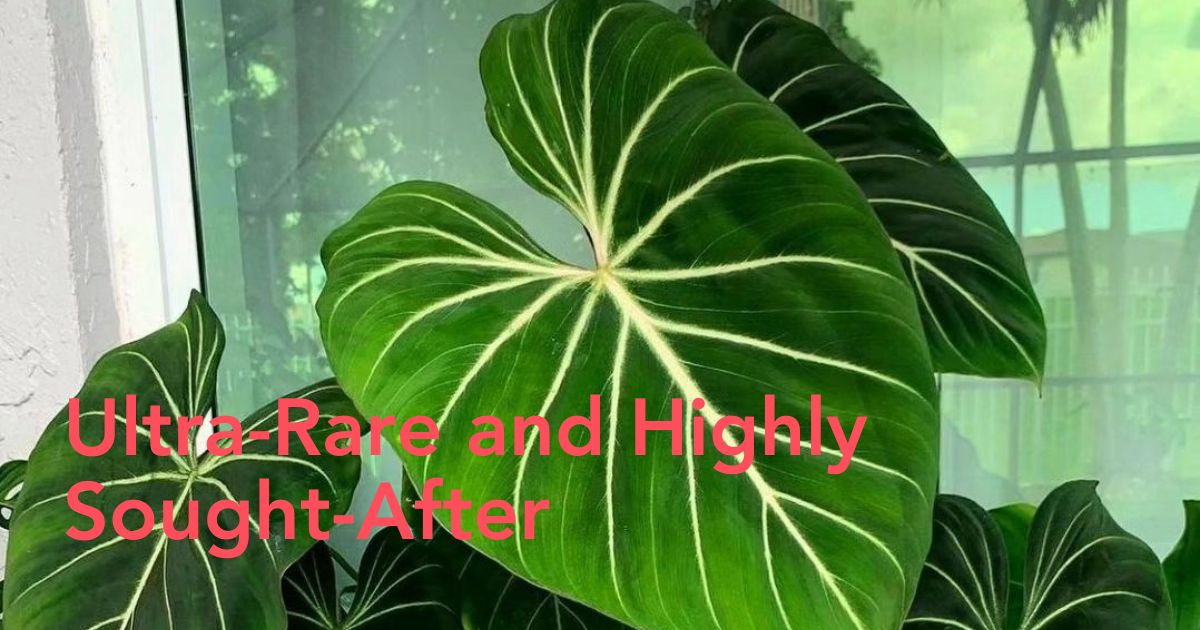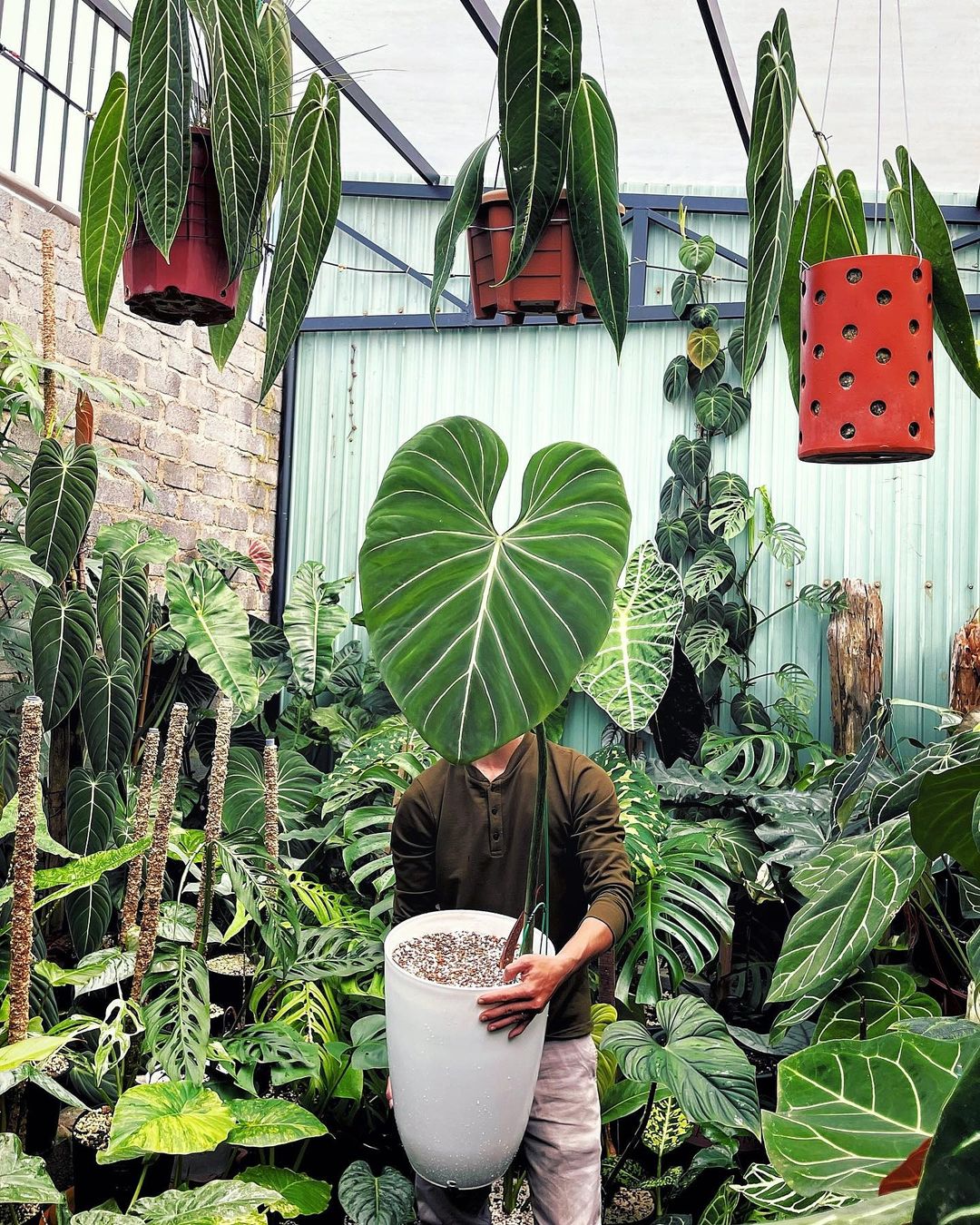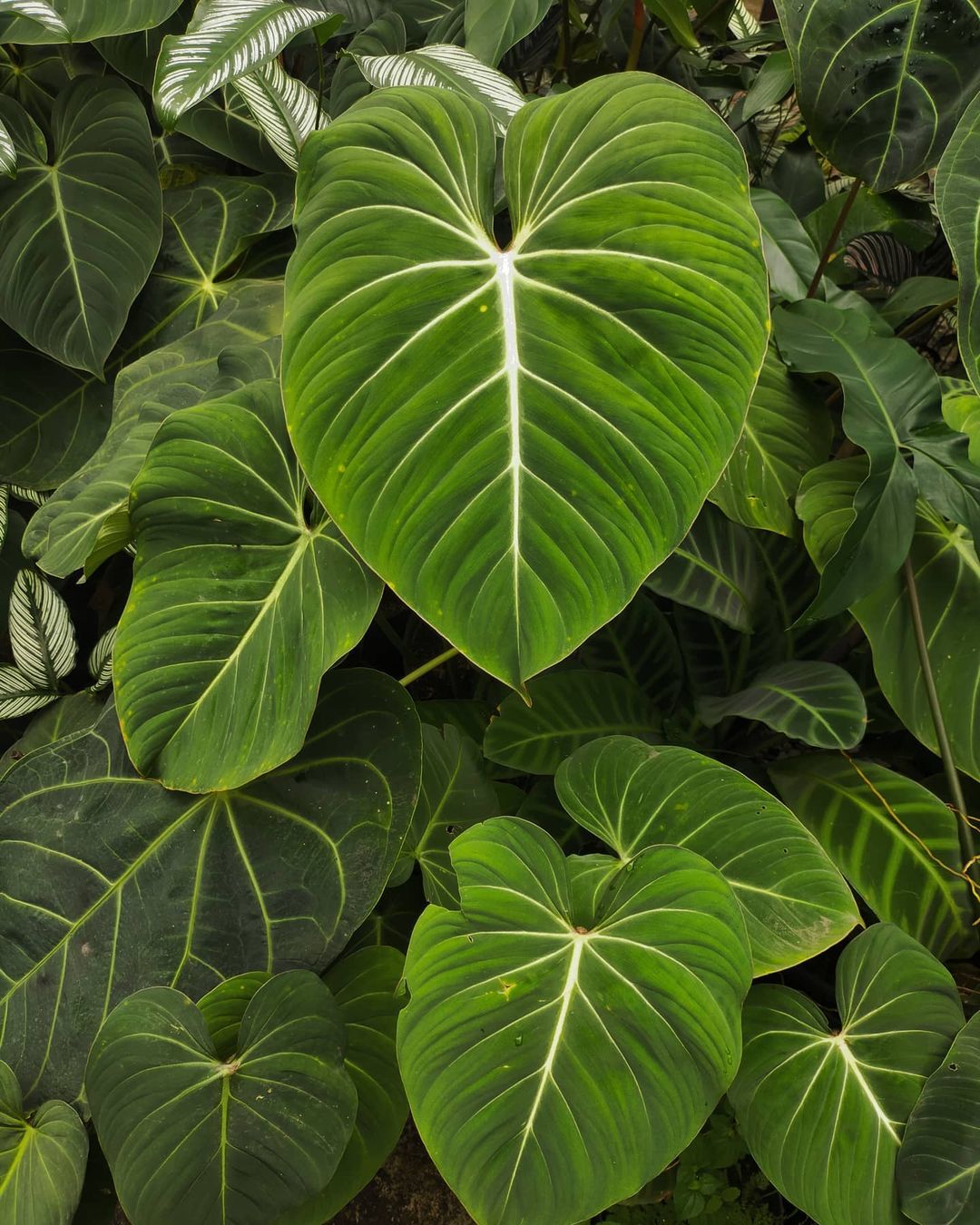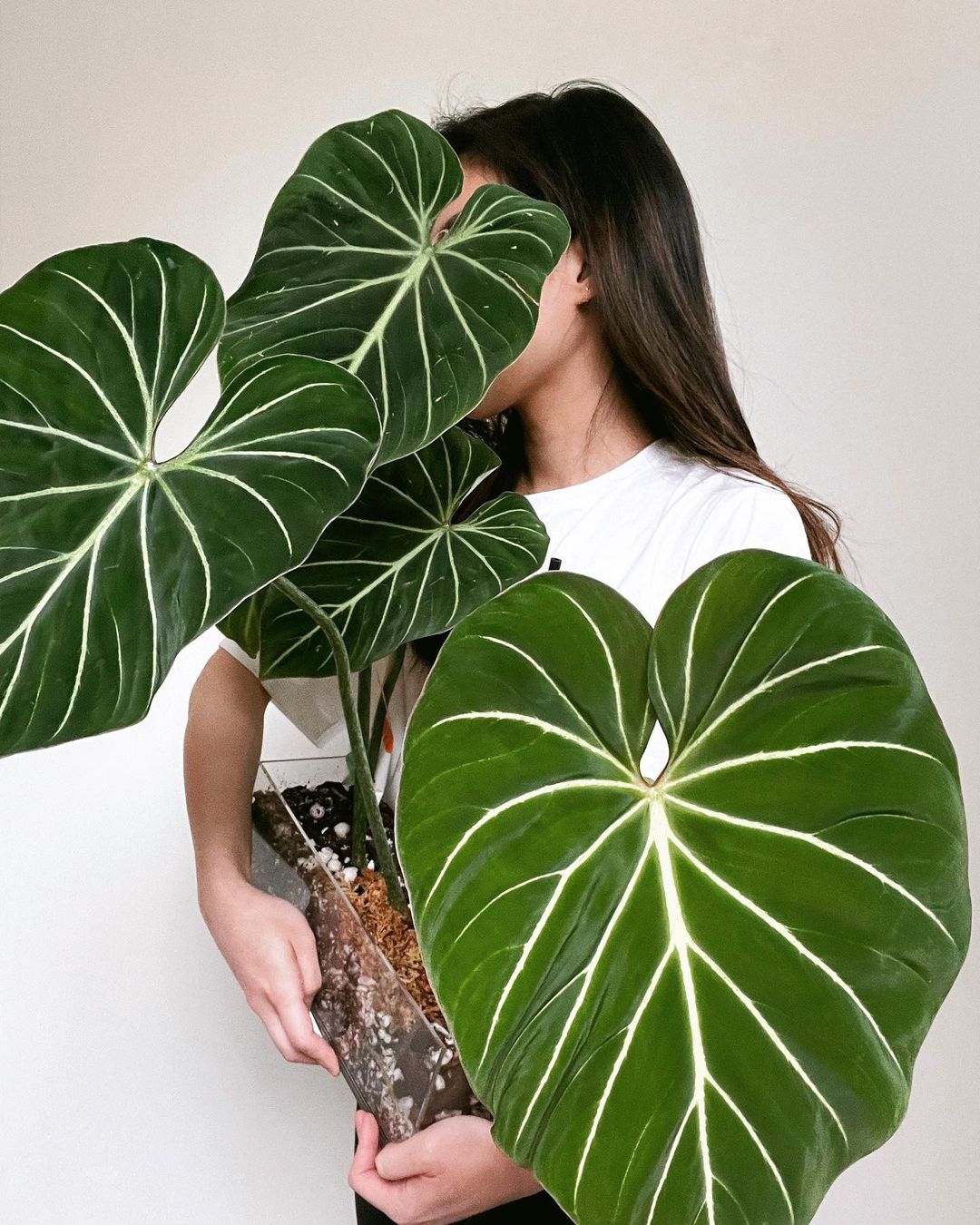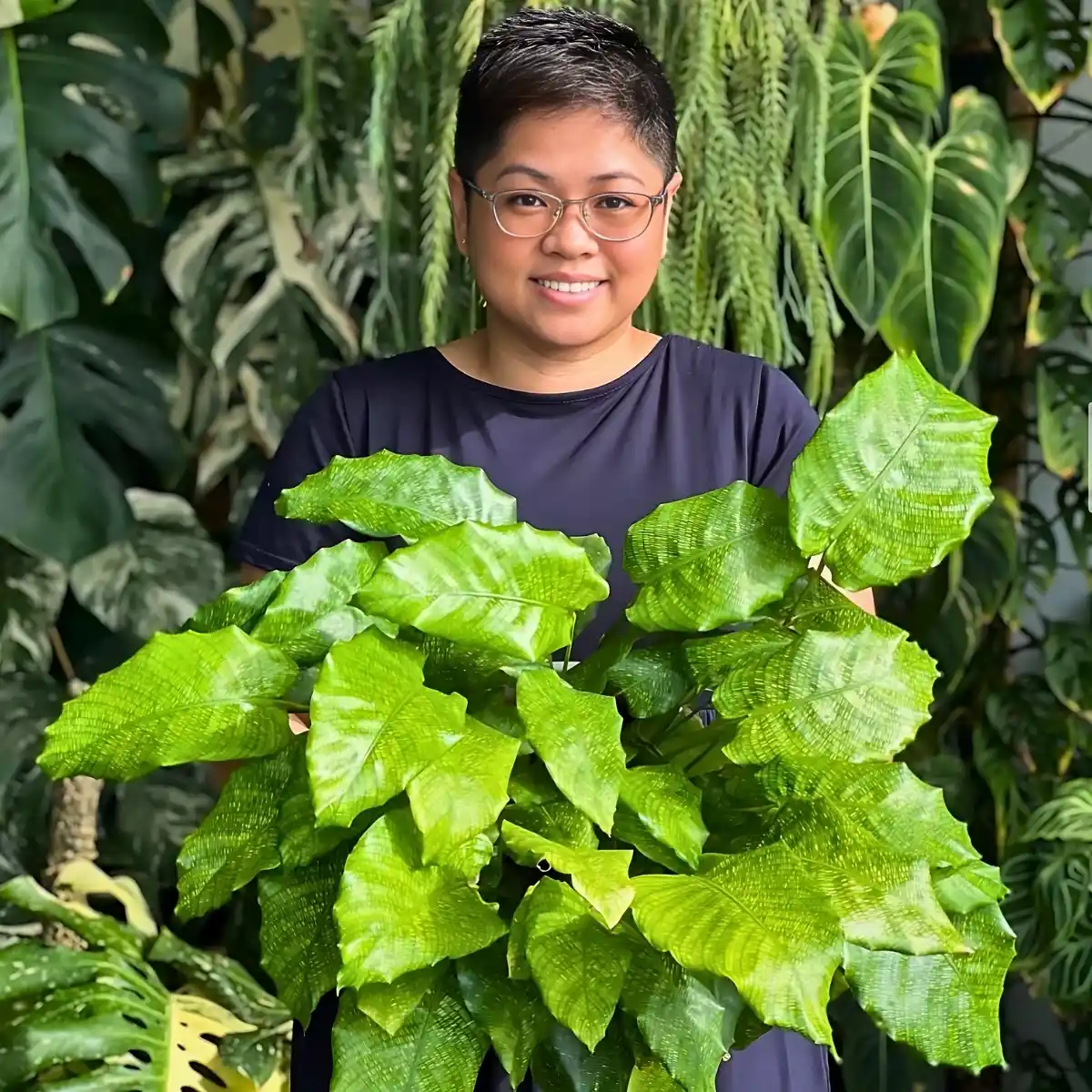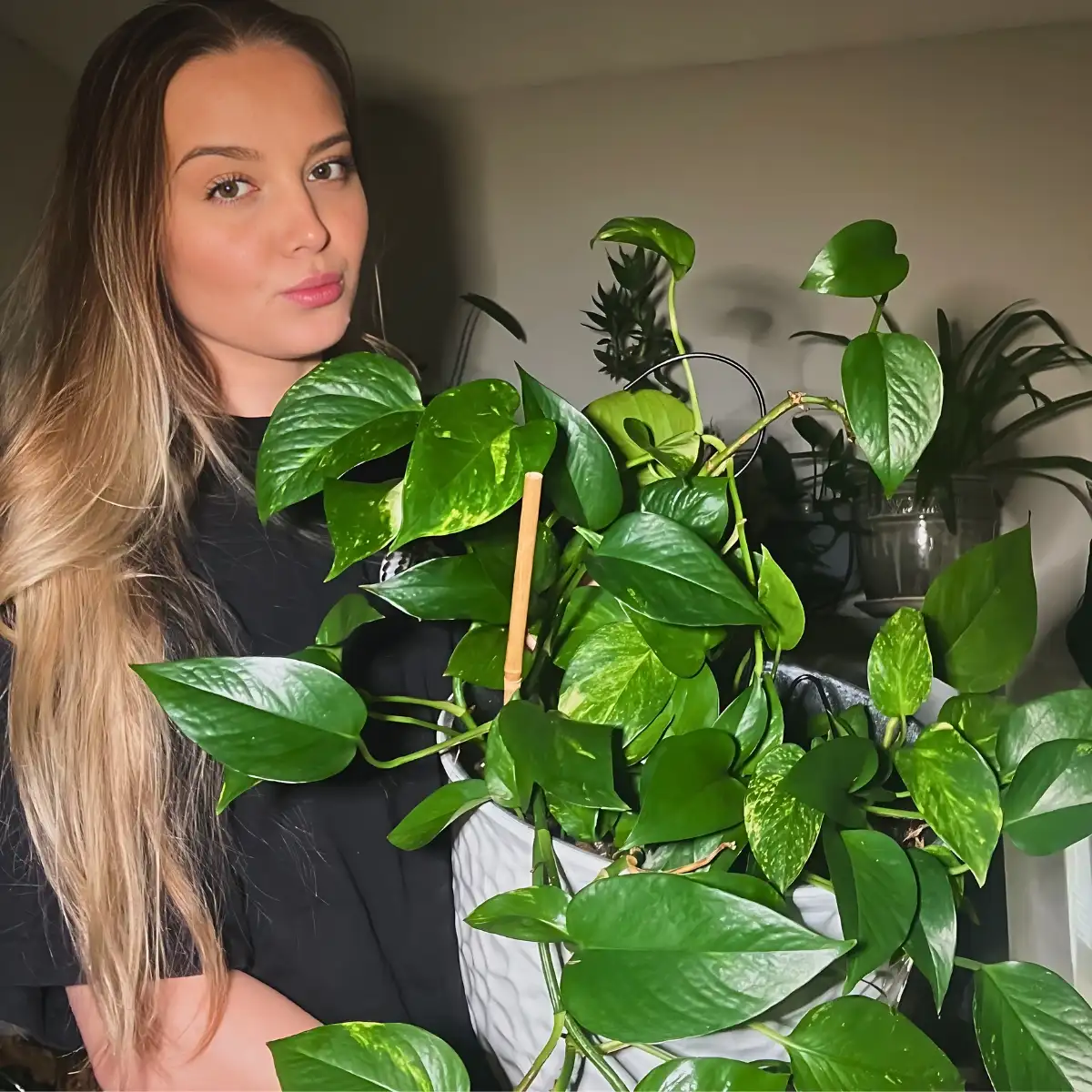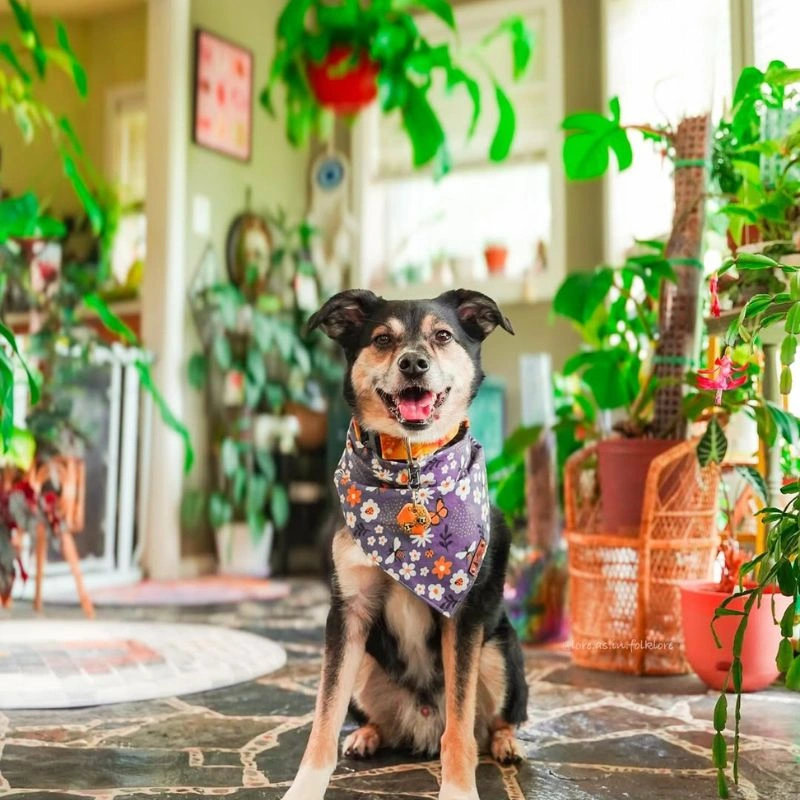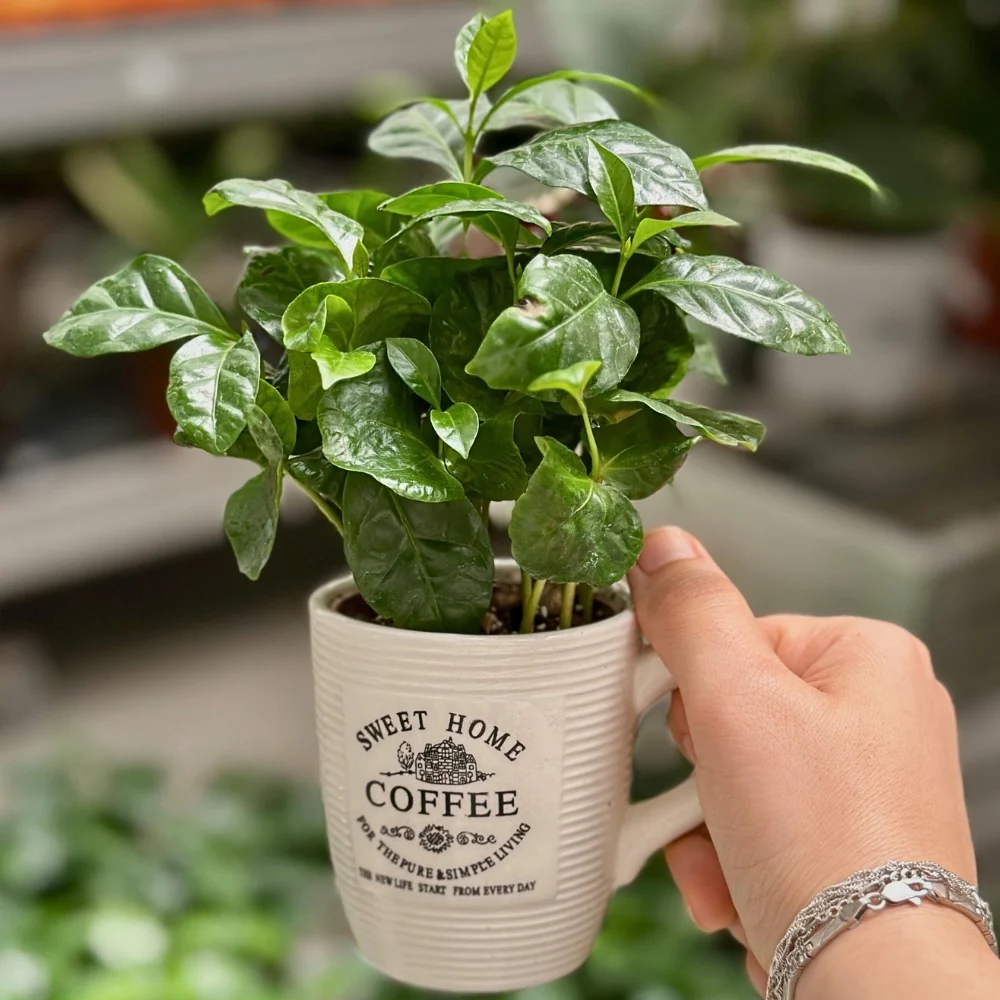The rare houseplant Philodendron Gloriosum is the ultimate combination of inner strength and outward beauty. Prized for its magnificiently large heart-shaped leaves with baby pink or cream margins and velvety foliage, its popularity is largely down to its beauty, not to mention its surging appearance on avid collectors' wishlists. The velvety leaves are a hallmark of this stunning plant, providing an exotic feel to any indoor setting.
Philodendron Gloriosum Plants Are Ultra-Rare and Highly Sought-After
With over 128,000 hashtags on Instagram, the Philodendron Gloriosum can be safely labeled as a crowd favorite. No wonder, because with its glorious, big heart-shaped leaves, this houseplant immediately captures the eye. Its one of the prime reasons that this plant is among the top choices when designing yoga studios.
And even though this beauty is originally from the tropics, with proper care, it will still thrive in colder environments. As native tropical plants, they require specific conditions to flourish, making them a rare but rewarding addition to any plant collection.
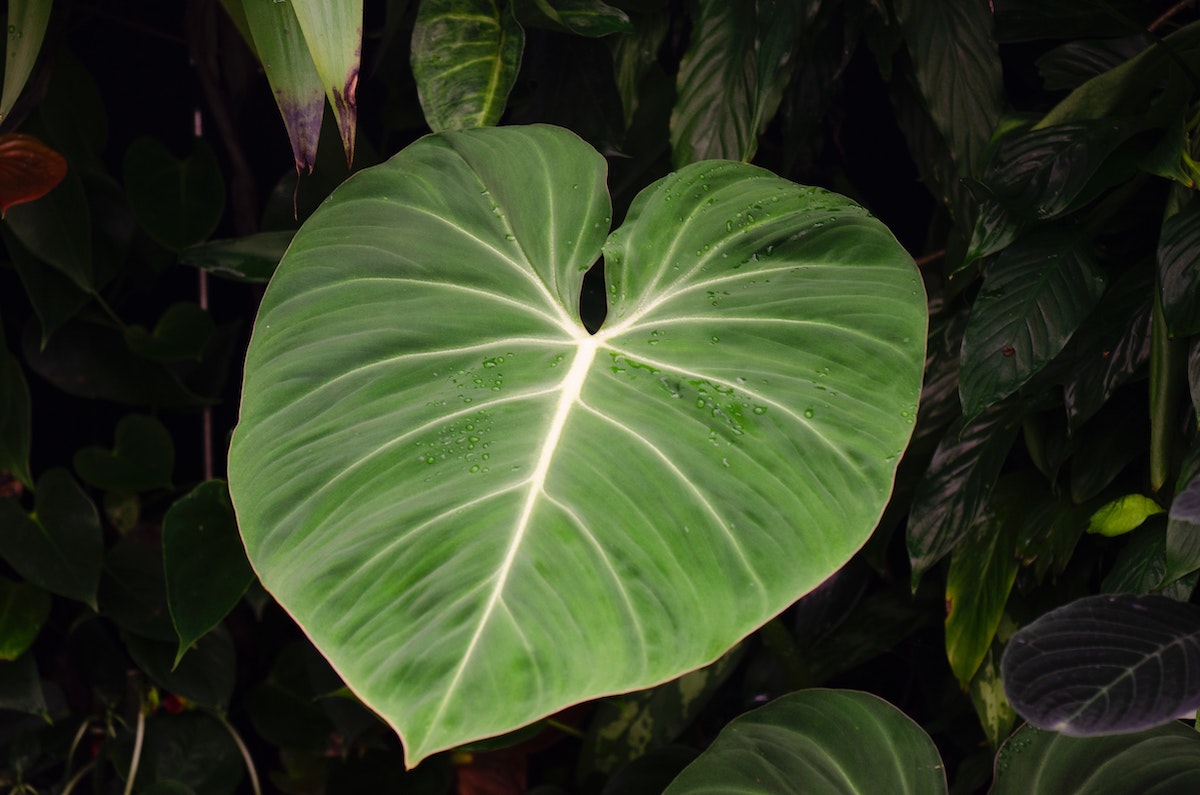
Philodendron Gloriosum is an IUCN Vulnerable Species
The Philodendron Gloriosum is a highly sought-after and ultra-rare tropical houseplant native to Colombia, South America. Many guides refer to this plant as 'widely available,' but this couldn't be further from the truth. In fact, the Philodendron Gloriosum is listed as a 'vulnerable' species on the IUCN's international red list.
There are only a few locations in the world where this plant is still found natively in the wild. Mostly in Colombia, with smaller clusters being found in Central and South America including Mexico, Venezuela, Ecuador, Peru, and Western Brazil. You can also find them in Hawaii, where the Philodendron Gloriosum has been introduced for commercial reselling. The plant's natural habitat in these regions is characterized by high humidity and dappled sunlight, which are crucial for its survival.
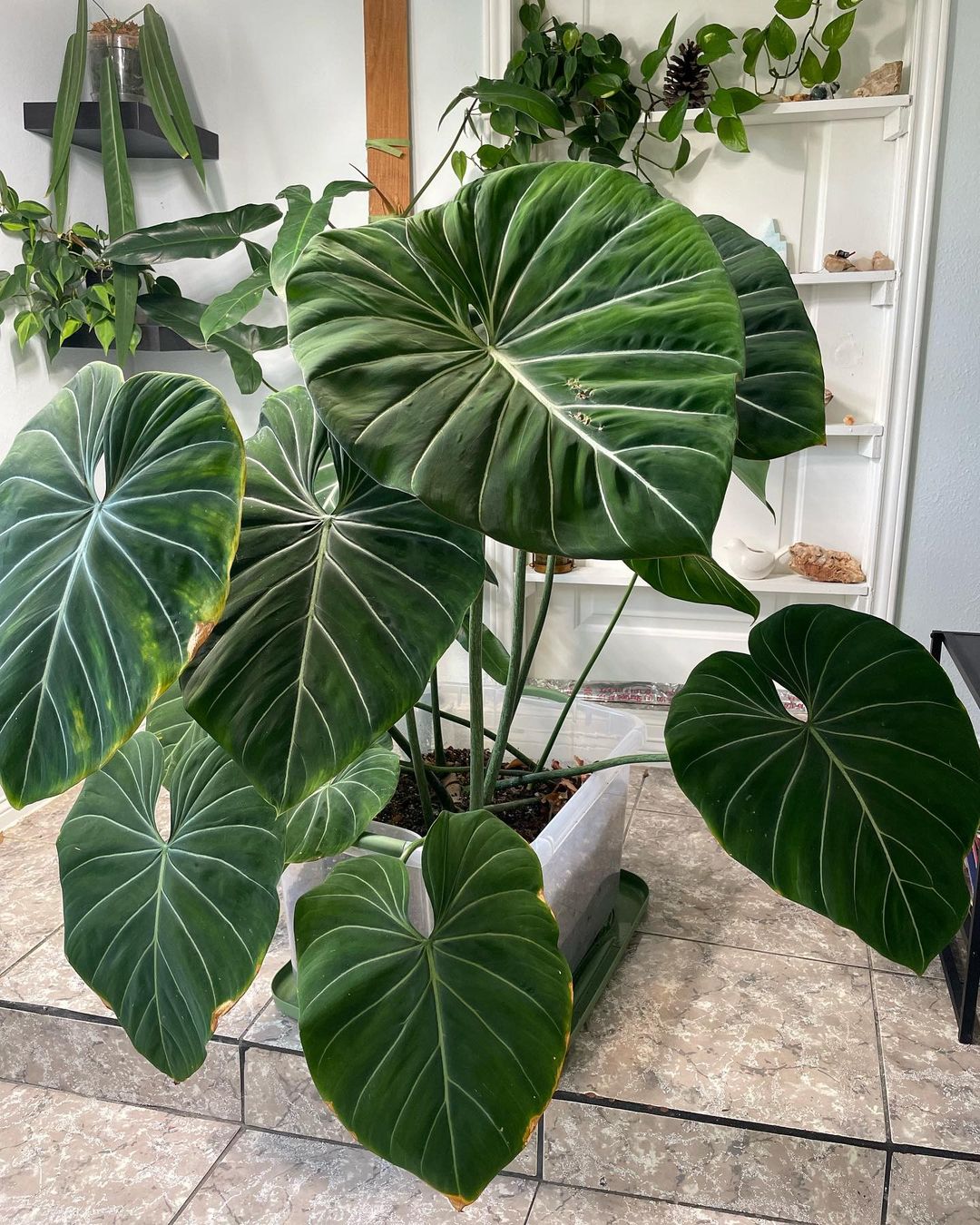
Beautiful Heart-Shaped Leaves of this Philodendron
The beautiful heart-shaped, deep green leaves of the Philodendron Gloriosum really make it a 'glorious' plant, as the name implies. The velvety leaves have a soft texture, and as they mature, the white veins become more pronounced. Philodendron Gloriosum leaves are said to reach a size of 90 cm in their natural habitat. The combination of its large leaf size and velvety foliage makes it a stunning plant for indoor spaces.
Images via @le.hairwork & @famozza_nurserymgl
Philodendron Gloriosum is not a climber, but a creeper. In nature, they crawl over the forest floor. Their roots are exposed, so make sure at home that the roots are not buried in the ground. The Philodendron Gloriosum is not a fast grower; from the time a new petiole appears, you may have to wait a month or more for the new leaf to fully open. The leaf then slowly darkens with increasingly pronounced veins. Ensuring the soil is well draining and keeping the soil consistently moist can help support healthy growth and prevent issues like root rot and poor drainage.
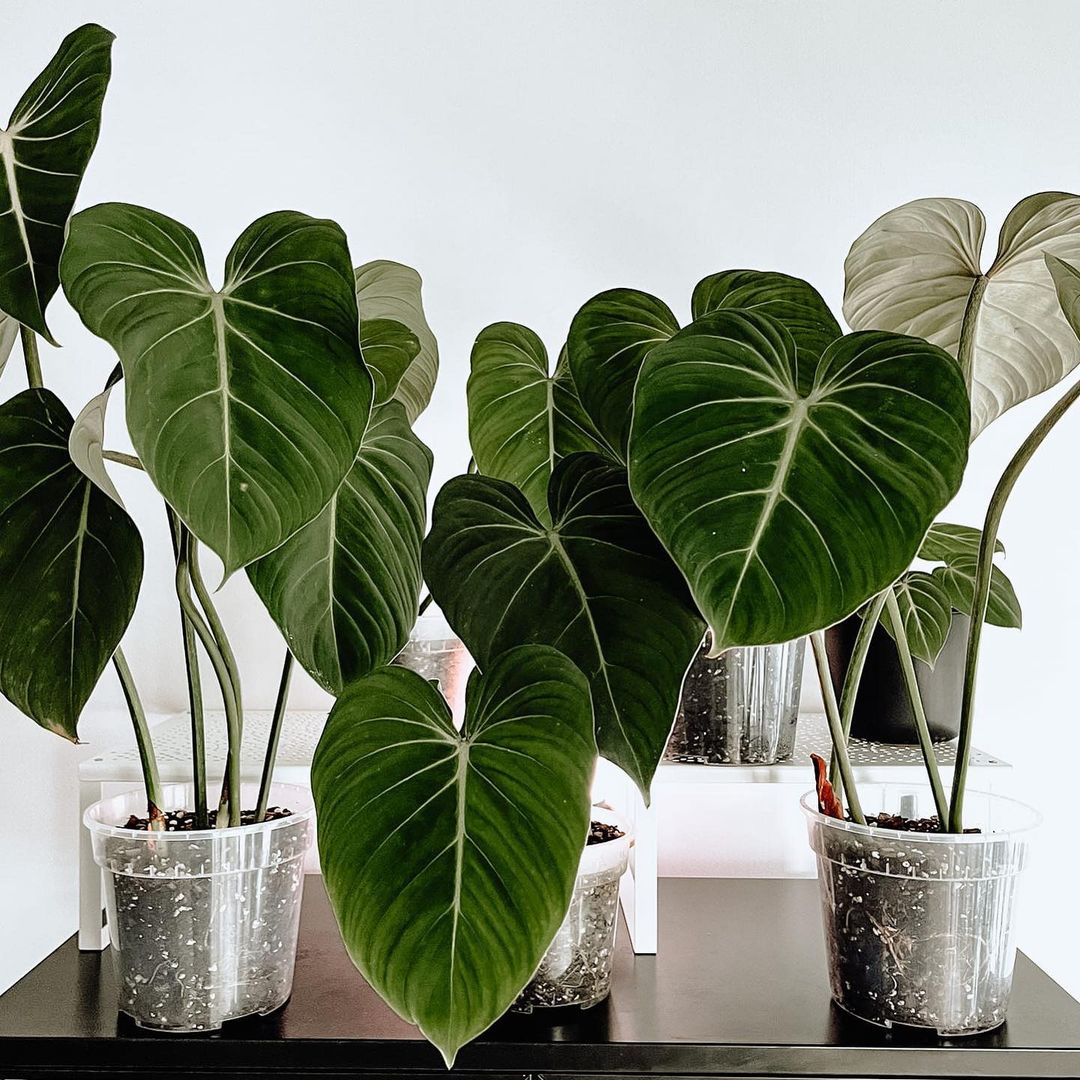
Care Tips for Your Philodendron Gloriosum
While this plant isn't the easiest Philodendron to care for, it is still relatively straightforward despite its flashy, high-profile status. The key to caring for this rare and alluring beauty is to mimic its natural growing environment as much as possible. Understanding the requirements for light, temperature, and humidity can help ensure that your Philodendron Gloriosum remains a healthy plant.
Philodendron Gloriosum Grow Best in Indirect Light
When choosing a spot for your Philodendron Gloriosum, it is important to consider the type of light it will receive. This plant thrives in bright indirect light, which closely resembles the filtered sunlight it would get under a forest canopy in its natural habitat.
Direct sunlight should be avoided as it can scorch the velvety leaves, causing them to lose their lush appearance. Place your plant near an east facing window where it can receive ample bright indirect light, but avoid direct rays that could damage the delicate foliage. Indirect light will help encourage steady growth while preventing yellowing leaves.
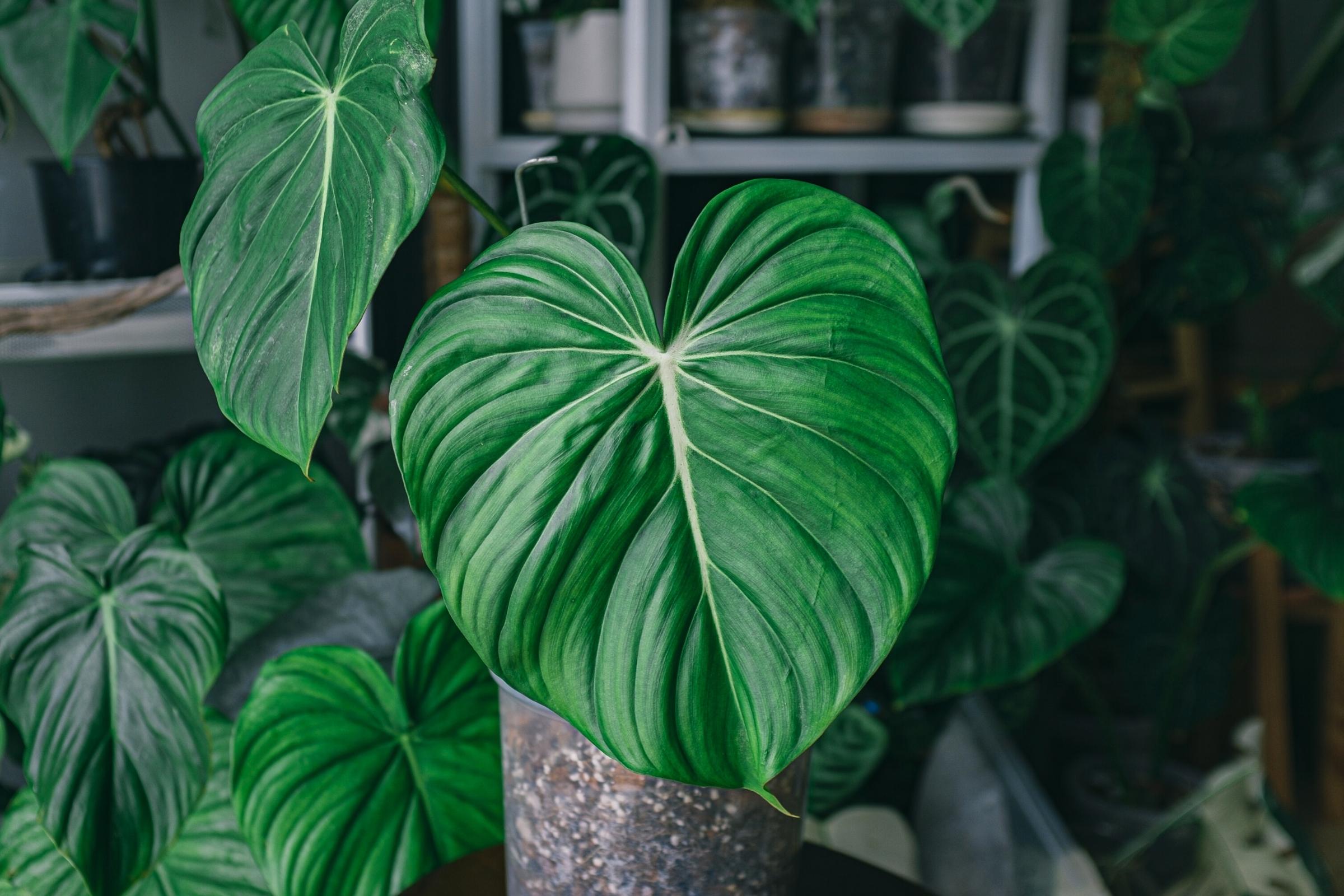
Ideal Temperature Range for Healthy Stem Growth of your Philodendron Gloriosum
The Philodendron Gloriosum prefers a consistent temperature that ranges between 65°F to 80°F. Rapid temperature changes can negatively impact plant growth, leading to stress and potential leaf damage. Keep your plant away from drafts, radiators, and air conditioning vents to maintain a stable environment. Placing your Philodendron Gloriosum in a room with steady temperatures will support healthy stem growth, helping it develop strong, vibrant leaves.
Maintaining the Right Humidity for Philodendron Gloriosum Indoor Plants
Philodendron Gloriosum, being a tropical plant, enjoys higher levels of humidity, ideally around 60-80%. However, it can adapt to average indoor humidity levels. If you notice that your plant's leaves are becoming crispy or showing signs of stress, consider taking steps to increase humidity around it.
You could place the plant near a humidifier or use a plastic bag as a temporary measure to trap moisture. High humidity helps maintain the lush appearance of the foliage, promoting healthy growth and reducing the risk of common problems like leaf browning.
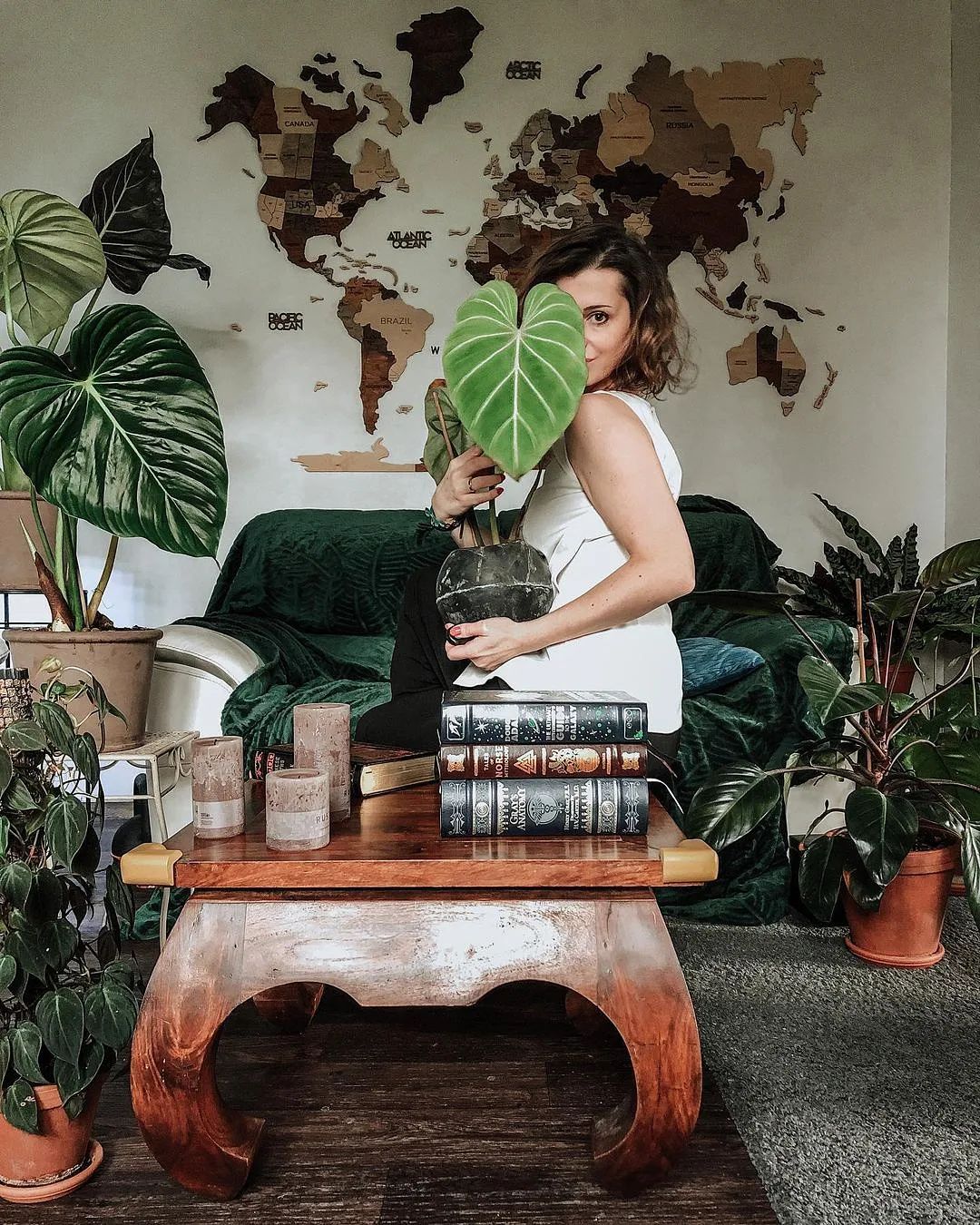
Watering Routine for Your Gloriosum to Prevent Root Rot
Watering is a crucial aspect of caring for your Philodendron Gloriosum. Always ensure that the soil feels dry in the top inch before watering again. Overwatering can lead to root rot, which is a common issue for this plant.
To avoid overwatering, water your plant thoroughly, allowing any excess water to drain away through the drainage holes at the bottom of the pot. Keep in mind that Philodendron Gloriosum prefers soil that remains moist but not soggy. During the growing season, regular watering helps support robust root growth and new leaves, but always adjust based on the plant's moisture levels.
Choosing the Perfect Soil Mix for Your Philodendron Gloriosum
Your Philodendron Gloriosum prefers a well draining soil mix that replicates the airy environment of its native habitat. Opt for potting soil designed for tropical plants, as it will typically contain components like perlite or orchid bark that keep the soil loose and prevent compaction.
Images via @plantsinthe_house & @itaenimclass
A mix that provides good aeration helps the roots breathe and prevents issues such as poor drainage and root rot. Make sure the pot has adequate drainage holes to allow excess water to escape, reducing the chances of overwatering.
Your Own Philodendron Gloriosum?
Because of its increasing rarity and fascinating beauty, the Philodendron Gloriosum has been aptly named, 'the glorious one,' a fitting title for such a stunning plant. It is one of those houseplants that 'finishes' your collection. Because they are becoming increasingly rare, they tend to be pricey, so it's a true houseplant gem for the avid collector. Once you get your hands on one, you know you have something truly special. Ensure you use balanced liquid fertilizer during the growing season to maintain its health, and keep neem oil on hand to ward off pests that might threaten your glorious Philodendron.

